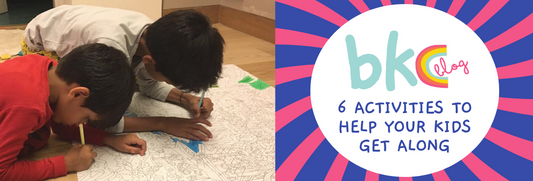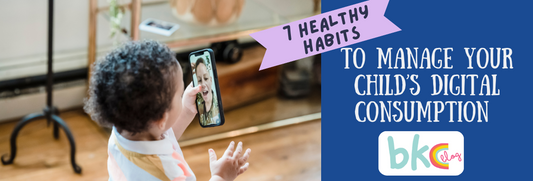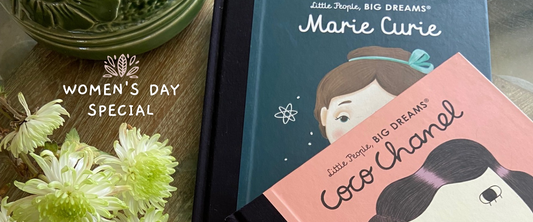There are many things to consider when introducing your child to your family pet or bringing a new pet into your home. The ideal balance is when both your child and pet feel comfortable and secure around each other. Read on for some useful tips on how you can facilitate this relationship.

Do you have a family pet? Or, are you planning to get a furry friend for your child because they’ve been begging for one? Whichever the case, teaching your child a few invaluable lessons about pet care and the responsibilities that come with it will help set them up for a beautiful relationship that they will treasure for life.
BKC’s own founder Natasha Sabharwal speaks of the ways in which her daughter’s life has been enriched by her relationship with their family pets, “She’s learnt to empathise and care for all living beings. It has taught her to be kind to others. When given the option to get a gift for herself or donate towards animal welfare, she chose to donate. In turn, our dogs are so maternal and protective over her.”
To help you as a parent and pet owner, we’ve put together a list of some essential things to teach your child on caring for a pet, and being kind to animals.
Teaching About Touch
Cute Instagram videos aside, babies ideally should never be left alone with pets, simply because children that young do not have the capacity to understand how to handle pets. For example: very young children, being naturally curious, may not understand that they shouldn’t pull a cat’s tail or a dog’s ear. From a young child’s point of view, it’s easy to see why they might mistake a cute furry cat for a stuffed toy!

While babies may be too young to be taught the nuances of touch, it is possible and important to start teaching toddlers how to handle and touch a pet. Guide your child’s hand over the animal showing them how to pet and touch it. Show them how the animal likes to be pet, where they don’t like to be touched, and how soft their touch should be while petting.
When your pup receives respectful affection from your child, it will pay it back in kind. Think lots of full-body tail wags, hugs, and wet slobbery kisses. Many dogs will even be intuitive enough to know when to be gentle. In turn, your tot will learn from your pet to wear emotions on the sleeve, and to approach life with unwearied enthusiasm.
Not a Furry Toy!
Teaching a child about the right way to handle, touch, and care for a pet is crucial from a safety perspective. It’s also a great opportunity to start teaching them their first lessons on empathy through their interactions with animals. Make them understand that unlike a toy that is not a living, breathing being, animals do feel pain, joy, sadness just like we do.
When young children want to play with animals, especially dogs and cats, they may want to ride them like a rocking horse. In their minds, they look similar, right? Even if you have a very patient, sweet-tempered pet, such behaviour should be strongly discouraged. Your child would also need to be taught not to scold or punish the pet, or feed them anything that is not food specially designated for them; both of which can be taught by example.

Soon your little one will realise that while your pet isn’t quite the same as a furry toy, it’s still a whole lot of fun to play with. Together, your two-legged and four-legged babies will go on lots of exciting pretend adventures – don’t be surprised to find them playing doctor or having a pretend tea party one of these days. You can also expect lots of fun romps in the park, with the whole family bonding over games like fetch, frisbee, hide and seek, or tug-of-war.
Involve Them With the Selection & Prep
If you are planning to get a pet, then involve your child in the process. Select a pet that is age and size appropriate vis-a-vis your child. If you have a young child, perhaps don’t go for a very large dog. You can already start teaching them about pet care by involving them in the process of prepping the house for the pet’s arrival.
If you’re getting a pet specifically because your child has been asking for one (adopt, don't shop!), then it is important to teach them that having a pet is a big responsibility and a commitment for life. While the pet will certainly be great company and a playmate for your child, help them understand that they will also become a member of the family just like everyone else.

You may need to handhold your child through the first few days in particular so they don’t feel neglected on account of the arrival. Explaining why you may be giving more attention to your new pet will assure them and help them understand why certain adjustments are necessary. For instance, if you’re adopting a pet then explain to your child in age-appropriate words what the animal may have endured and why it may be important to create an environment where the animal finds it easy to decompress and adjust.
Assign Age-Appropriate Tasks
As your child bonds with the pet, it may be time to gradually teach them about the responsibilities that come with caring for a pet. You can assign them small tasks, such as putting food into the pet’s bowl.
While older children can be taught to measure how much food is to be served; with younger children, you can fill up the bowl and have your child just serve the bowl to your pet at the assigned spot. You could even involve your child when grooming the dog. If age appropriate, can teach your child how to handle the dog on a leash. Have your child accompany you on vet visits so they feel more invested in the pet’s well-being.

Be mindful of not assigning children tasks that are far beyond their age. This may discourage or frustrate them. As your child takes ownership of certain tasks they will feel confident about them. It will teach them essential lessons on independence and a sense of responsibility which will flow into other areas of their life.
Concerns as a Parent
As a parent you may be concerned about bringing a pet into your home at all, precisely because you have children. Reasons could vary from safety, say exposing your child to germs. But studies show that exposing children to pets can actually boost their resistance towards germs and strengthen their immune system.

Another concern that you may have could be to do with the fact that pets have tragically short lives. A lot of parents worry about handling the topic of loss with little ones. Don't be wary – if the situation permits, try to mentally prepare your kids ahead of time. Approach the topic with calmness and honesty and use age-appropriate words. Although different children will react differently to such an event, remember that kids are more resilient than you might think. Use this as an opportunity to teach them about the circle of life.
Ultimately, the pros outweigh the cons. Moreover, having a pet can bring with it a great many advantages: it will teach your child about empathy, responsibility, sensitivity. Most of all, they will have a loyal and loving companion to share their childhood with. They will just need a helping hand to guide them through the process.





